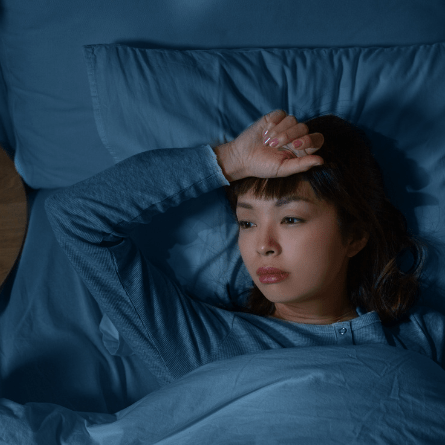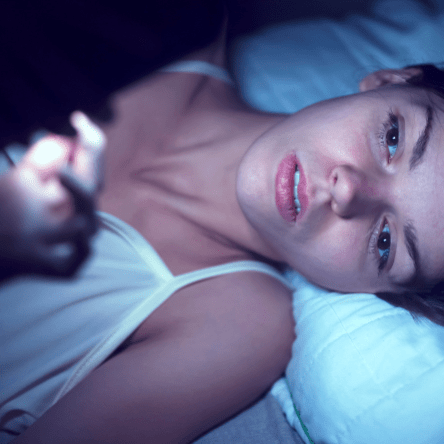 Do only a few hours of sleep per night do the same job as having a full eight hours of sleep? Let’s explore and hopefully, we can improve our sleeping habits.
Do only a few hours of sleep per night do the same job as having a full eight hours of sleep? Let’s explore and hopefully, we can improve our sleeping habits.
Having good quality sleep of the recommended duration has become almost a luxury in modern society. Many people I have talked to suffer from poor sleep. They can’t fall asleep or stay asleep through the night. We should not be surprised that there are so many chronic diseases that are related to poor sleep. Some say they only need a few hours of sleep and that they are fine with that. Sooner or later, they will pay the price for their bad habits.
Many factors can affect our sleep, but we are going to focus on those that we can control with some persistence and patience on our side.
The first one that comes to mind is perhaps the most controversial due to its addictive nature or devices at home. Phones and devices are an important part of the daily routine in our lives nowadays. In fact, most people are exposed to blue light emitted not only by mobile devices, but also by the light from our LED televisions and LED lights used to illuminate the interior of our homes. We are exposed to blue light everywhere in our homes! Some studies suggest that blue light affects our sleep cycle and may affect our health!
It is known that not getting enough sleep can affect the physical and mental health of almost everyone. Staying up too late can even affect our attention, behavior, and even our cellular recovery during sleep. When it comes to screens and sleep, there are a few things we need to remember:
What is blue light?
Not all colors of light have the same effect. Blue wavelengths, which are beneficial during the day because they increase attention, reaction times and mood, appear to be the most disruptive at night. The proliferation of electronic devices with screens, as well as energy-efficient lighting (LED), is increasing our exposure to blue wavelengths, especially after sunset.
It is said, according to some medical studies, that exposure to light suppresses the secretion of melatonin, a hormone that influences circadian rhythms. Even dim light can interfere with a person's circadian rhythm and melatonin secretion.
Effects of blue light and sleep
While light of any type can suppress melatonin secretion, blue light at night does affect us more strongly. Harvard researchers and their colleagues conducted an experiment comparing the effects of 6.5 hours of exposure to blue light with exposure to green light of comparable brightness. Blue light suppresses melatonin for about twice as long as green light and changes circadian rhythms by twice as long (3 hours vs. 1.5 hours).
 LED blue light exposure
LED blue light exposure
If blue light has adverse health effects, then environmental concerns and the pursuit of energy-efficient lighting could be at odds with our personal health. Those compact fluorescent bulbs and LED lights are much more energy efficient than the old incandescent bulbs we grew up with, but they tend to produce more blue light.
The physics of fluorescent lights cannot be changed, but the coatings inside the bulbs can be changed so that they produce a warmer, less blue light.
How can we protect ourselves from blue light at night? Here are some actions that could help us:
- Avoid looking at bright TV or home lighting two to three hours before bedtime. Consider using dimmers for your home night lighting.
- Use dim red lights for night lights. Red light is less likely to change the circadian rhythm and suppress melatonin. Experiment with other light colors that may work best for you.
- If you work a night shift or use a lot of electronic devices at night, consider wearing blue-blocking glasses or installing an app that filters the blue/green wavelength at night.
- Expose yourself to plenty of bright light during the day, which will increase your ability to sleep at night, as well as your mood and alertness during the day.
- Avoid exposure to blue light from smart devices at least 1 to two hours before going to sleep. Turn off notifications on your devices (many smart devices have automatic settings for this)
- Don't place any devices that emit blue light in your bedroom! The farther away from your reach you put them, the better chance you have of avoiding the temptation of checking them!
- Be consistent with your sleep routines. Make a schedule on your phone or in writing of your desired sleep hours. This way, it will make you more aware of the importance of it.
- If you fail to stick to your sleep routine, sometimes, forgive yourself and come back to your routine that you know works for you.
Other factors that affect your quality sleep, besides blue light, are the amount of your daily physical activity and eating habits. We all have experienced the dreadful effects of eating a late dinner and then, trying to sleep! It is really awful, especially if you have digestive issues.
What can we do to help us sleep better?
- Don’t eat your last meal late at night, especially if you have digestive problems. It can be hard to not do it, especially if your work schedule doesn't allow you to eat earlier.
- Get enough natural light, especially early in the day. Try going for a walk in the morning or at lunch time. The earlier, the better.
- Get enough physical activity during the day but try not to exercise within a few hours of going to bed, because it may temporarily increase your alertness and energy levels when you are trying to sleep.
- Although exercising late at night (before bedtime) may negatively affect some people, it actually works best for some “night owls”, since exercising can give you more energy and alertness immediately after working out.
- Avoid artificial light, especially within a few hours of bedtime. Use a filter when possible.
- If you are short of time, like most of us, doing a little bit of activity throughout the day keeps adding to the positive effect for a better sleep.
If you want to dive into this topic, check these resources from our ample collection at your Harris County local library.



Add a comment to: Does not getting enough sleep really affect your health?